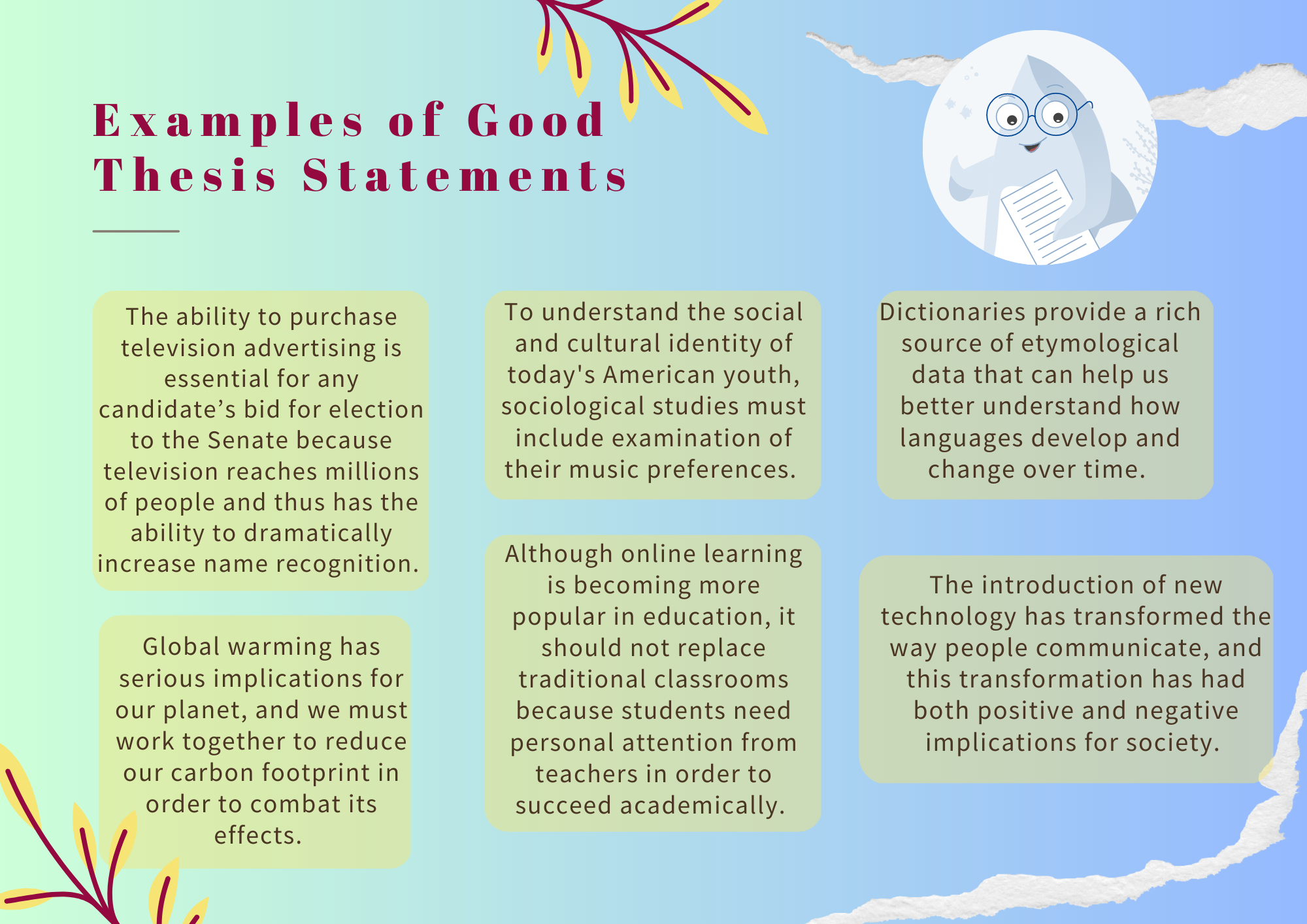Introduction
Crafting a strong thesis statement is an essential aspect of academic writing, as it serves as the foundation upon which your entire assignment is built. In this blog, we will delve into the intricacies of creating a robust thesis statement that effectively conveys the central argument of your assignment.
Understanding the Significance of a Thesis Statement
Before delving into the specifics of crafting a strong thesis statement, it is imperative to grasp its significance. A thesis statement serves as a roadmap for your readers, providing them with a clear understanding of the purpose and direction of your assignment. It encapsulates the main idea or argument that you will explore and support throughout your paper.
The Components of a Strong Thesis Statement
A well-crafted thesis statement comprises several key elements that contribute to its effectiveness. Let's break down these components:
Clear and Concise
A strong thesis statement is clear, concise, and to the point. It should articulate the main idea of your assignment in a succinct manner, avoiding vague language or unnecessary details. Get nurs fpx 4040 assessment 4 is an integral part of the nursing curriculum designed to evaluate students' understanding and application of key concepts in patient care, clinical decision-making, and nursing practice. This assessment encompasses a range of topics, including but not limited to health assessment, patient evaluation, diagnostic reasoning, and evidence-based practice. Through this assessment, students are tasked with demonstrating their proficiency in conducting comprehensive patient assessments, formulating nursing diagnoses, and developing appropriate care plans to address patient needs. Successful completion of "Get Nurs FPX 4040 Assessment 4" is indicative of a student's readiness to excel in the field of nursing.
Specific and Focused
It is crucial for a thesis statement to be specific and focused. Rather than making broad generalizations, it should narrow down the scope of your topic and highlight the particular aspect you will be addressing.
Arguable and Debatable
A compelling thesis statement presents an argument that is open to interpretation and debate. It should not merely state a fact but rather take a stance that can be supported or challenged through evidence and analysis.
Supported by Evidence
An effective thesis statement is backed by evidence from credible sources. It should provide a preview of the main points you will discuss in your assignment and indicate how you will support your argument.
The Process of Crafting a Strong Thesis Statement
Crafting a compelling thesis statement requires careful consideration and planning. Follow these steps to develop a robust thesis statement for your assignment:
Identify Your Topic
Begin by identifying the topic or issue you will be addressing in your assignment. Consider what aspect of the topic interests you the most and what message you want to convey to your readers.
Conduct Research
Once you have chosen a topic, conduct thorough research to gather relevant information and evidence to support your argument. Familiarize yourself with existing literature and scholarly articles that explore similar themes.
Narrow Down Your Focus
Narrow down the focus of your thesis statement to a specific aspect of your topic. Avoid trying to cover too much ground, as this can result in a vague and unfocused thesis statement.
Take a Stance
Based on your research and analysis, take a clear stance on the issue you are addressing. Your thesis statement should reflect your position and provide a glimpse of the argument you will be making in your assignment.
Draft Your Thesis Statement
Once you have clarified your topic and taken a stance, draft your thesis statement. Ensure that it is clear, concise, and captures the essence of your argument in a single sentence.
Connecting the Blog Topic with Crafting a Thesis Statement
Now, let's explore how the process of crafting a strong thesis statement relates to the topic of this blog. Writing a strong thesis statement for your assignment requires a similar approach to writing a well-structured blog. Both involve identifying a central idea, researching to gather supporting evidence, and presenting a clear and coherent argument.
By following the guidelines outlined in this blog, you can effectively translate the skills and techniques used in writing a blog into crafting a compelling thesis statement for your assignment. Whether you're writing a blog post or an academic paper, the ability to articulate your ideas clearly and persuasively is essential for engaging your audience and conveying your message effectively.
Conclusion
Crafting a strong thesis statement is a fundamental skill that every student should master. By following the steps outlined in this blog, you can develop a thesis statement that effectively communicates your central argument and sets the stage for a well-structured and cohesive assignment.
FAQs (Frequently Asked Questions)
Why is a thesis statement important in academic writing?A thesis statement serves as a roadmap for your readers, guiding them through the main points of your assignment and providing clarity on your central argument.
Can a thesis statement change as you conduct research?Yes, it is common for a thesis statement to evolve as you gather more information and refine your argument. Be open to revising your thesis statement to reflect new insights or evidence.
How long should a thesis statement be?A thesis statement should be concise and to the point, typically consisting of one or two sentences that clearly articulate your main argument.
Should I include my thesis statement in the introduction of my assignment?Yes, your thesis statement should be included in the introduction of your assignment to provide readers with a clear understanding of your central argument from the outset.
What if I struggle to articulate my thesis statement?If you're having difficulty crafting your thesis statement, consider seeking feedback from your instructor or consulting with a writing tutor for guidance and support.
How to Craft a Compelling Thesis Statement for Your Assignment
Страница: 1
Сообщений 1 страница 1 из 1
Поделиться12024-03-28 14:31:38
Страница: 1
